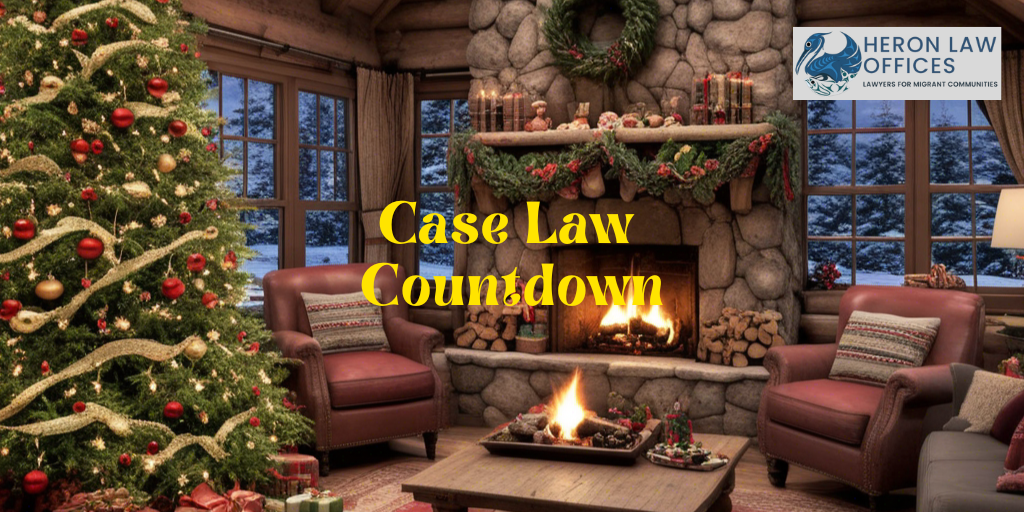
Image made using Venice.ai with the prompt: “Calming Christmas cabin.”
The Applicant, a citizen of China, applied for permanent residence (PR) under the Spouse or Common-Law Partner in Canada Class in July 2022, following his marriage to the Sponsor in June 2022.
The Officer issued the Applicant a procedural fairness letter (PFL), alleging that the Applicant and Sponsor had been cohabiting as conjugal partners since December 2020 and that they became common-law partners in December 2021. The Sponsor also did not declare the Applicant in her PR application, indicating that she was single and did not have any dependents at the time of landing. The Officer was therefore concerned that the Applicant was excluded under IRPR 125(1)(d) as a non-accompanying family member who was not examined at the time of landing.
The Applicant responded to the PFL, arguing that him and the Sponsor were not in a conjugal relationship prior to being married and that they were not common-law partners when the Sponsor obtained PR.
In January 2023, the application was refused on the basis that the Applicant was excluded pursuant to R 125(1)(d). The Applicant then sought leave for judicial review of the Officer’s decision.
Madam Justice Go found the Officer’s conclusion that the Applicant and the Sponsor were in a common-law relationship unreasonable.
Relying on previous case law which defines “family member”, “common-law partner” and “conjugal relationship”, the Officer’s finding that that the couple was in a conjugal relationship was too narrow, resting only upon the fact that the Applicant and the Sponsor shared a shelter over different periods of time in China and in Canada. The Officer did not analyze any other factors of a conjugal relationship under the M v H framework, nor consider the Applicant’s evidence in relation to these factors. The Officer’s failure to engage with the evidence and explain how the evidence was assessed per M v H made the reasons inadequate.
In obiter, Madam Justice Go agreed with the Applicant that there is a disconnect between questions a) and b) in paragraph 3 of Part C of the IMM 5532 form, which ask:
- a) “How long have you been cohabiting (living together)?”
- b) “Give the period(s) you have been living together after your conjugal relationship started.”
Madam Justice Go writes:
[27] Specifically, question a) does not ask “How long have you been cohabiting (living together) in a conjugal relationship?”
Rather, that question simply asks a couple to state how long they have physically resided together. The Applicant maintains that the couple correctly answered that they have physically cohabited since December 2020.
[28] Whether or not the Applicant in this case did provide a correct answer lies beyond my scope of review. I simply observe that the disconnect between part a) and b) in paragraph 3 may mislead an applicant, especially one who does not appreciate the important nuance between cohabiting and cohabiting in a conjugal relationship, to provide a start date of cohabitation, without realizing that their answer may be construed as being the start of their conjugal relationship as well.
See: Liu v. Canada (Citizenship and Immigration), 2024 FC 2001, <https://decisions.fct-cf.gc.ca/fc-cf/decisions/en/item/527060/index.do>.
If you need legal advice for a Spousal Sponsorship application, please contact Heron Law Offices to book a consultation with one of our experienced immigration lawyers.



